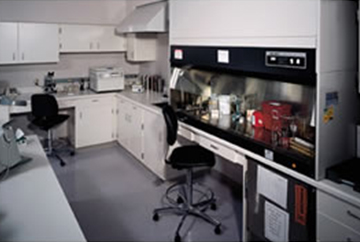Services
Quality Accreditations
National and International Accreditations and Certifications like the Full NABH, Entry Level NABH, NABL & JCI are considered prestigious acknowledgements of the Healthcare Quality as they substantially improve the safety and quality of care and services provided for Large, Medium and Small Healthcare Organisations. Quality Standards form the basis of an objective evaluation of the process that can help health care organizations measure, assess and improve performance. Most of these improvements being possible only by with grass root changes in the practices followed across the Organisation.
ACME Consulting is India's leading Healthcare Quality Consultancy. Since our inception in 1996 we have worked with over 1400 Hospitals & Labs, both in the Private and Government Sectors to successfully implement quality management systems like the JCI, Full NABH, Entry Level NABH, NABL and the ISO 9001. Our team of in-house healthcare quality professionals is the largest in the country today. We are also the only Quality Council of India Accredited Consultancy for NABH and Entry Level NABH in India retaining the same for 14 years without a break. We have also been rated highest for Quality Improvement Projects by NHSRC, the technical wing of National Rural Health Mission, Government of India.
Mandatory Compliance Legal & Statutory
News and Updates
NABH
The National Accreditation Board for Hospitals & Healthcare Providers (NABH) Standards is today the highest benchmark standard for hospital quality in India. For Allopathic Hospitals there are mainly two versions of the Standards, one being the Full NABH suitable for large Speciality and Tertiary Care Level Hospitals and Entry Level NABH meant mainly for Smaller Hospitals who do not have the Infrastructure and Resources to comply with the Full NABH.
Learn More >>>


NABH Digital Health Standards
NABH came out with the First Edition of a New Accreditation Standard, the Digital Health Standards for Hospitals.
The release of such a Standard had been expected for quite some time, to set the framework for implementing the Ayushman Bharat Digital Mission (ABDM), Government of India's most ambitious program of having all the Hospitals in the Country on a common Digital Platform. Unless the Hospitals have a Standardized and robust IT infrastructure, with a recognized Hospital Management Information System (HMIS), Electronic Health Record (EHR), Telemedicine and Patient's Portal etc., it would be impossible to have Inter-operability, i.e., ensuring an individual patient's record would be accessible, with his or her consent across the 25,000+ Hospitals empaneled with the Ayushman Bharat or any of the other Public or Private Health Insurance Companies.
Learn More >>>
NABL
National Accreditation Board for Testing & Calibration Laboratories (NABL), similar to the NABH, is also an autonomous body, under the Quality Council of India. The primary objective being to maintain an accreditation system for laboratories suitable for India, developed in accordance with relevant national and international standards and guides. The NABL Accreditation is a formal recognition of the technical competence of a laboratory based on third party assessment and following international guidelines. Trained Assessors taken from institutions all over India, with established credentials in testing and calibration activities carry out the assessment.
Learn More >>>
JCI
The Joint Commission in an independent, not-for-profit organization that has accredited and certified more than 20,000 health care organizations and programs in the United States. The Joint Commission accreditation and certification is recognized as a symbol of quality that reflects an organization?s commitment to meeting certain performance standards.
The Joint Commission International came about in 1994 to meet the healthcare quality accreditation requirements in countries outside the United States. Though local needs vary and diverse cultures present unique challenges, the Joint Commission International (JCI) has become recognised as a consistent beacon for patient safety and quality improvement in the global community. JCI has a presence in more than 90 countries today.
JCI works with health care organizations, governments, and international advocates to promote rigorous standards of care and provide solutions for achieving peak performance. The accreditation process seeks to help organizations identify and resolve problems and to inspire them to improve the safety and quality of care and services provided. The process focuses on systems critical to the safety and the quality of care, treatment and services. The Joint Commission Standards are developed with input from health care professionals, providers, subject matter experts, consumers, government agencies and employers. They are informed by the scientific literature and approved by the Board of Commissioners.
Our approach to the JCI Accreditation makes it a more rigorous exercise when compared with the NABH. While the aim of both accreditation systems are to improve the safety and quality of care and services provided, we focus during the JCI more on systems critical to the safety and the quality of care, treatment and services. The Standards form the basis of an objective evaluation process that can help us measure, assess and improve performance. By involving the staff at all levels we work to making improvements possible only by changes in the practices followed across the Hospital. For this reason in the JCI implementation we find it essential that the senior management of the Hospital from the Directors to the Departmental Heads demonstrate their total commitment to the exercise, with their participation at every stage of the accreditation process. The evident display of their involvement will help in ensuring the participation of all in the process.
Learn More >>>



Hospital Projects
Our Hospital Projects Division will help you upgrade your existing Hospital or set up a new green field one in full compliance with NABH & JCI. Our team of Hospital Administrators, Project Managers, Architects, Planners and Equipment Specialists is the largest in the country today. Our Services would include Hospital Design, Plan, Architecture Market Feasibility Studies, Detailed Project Report (DPR) and Equipment Planning.
Learn More >>>
Hospital Staff Training and Recruitment Solutions
ACME's background of over 20 years in the field of Healthcare Quality, where we are considered the pioneers in the Country, has given us immense insight into the staffing needs of Quality Hospitals and how to best address them by identifying the Right Persons for filling these needs.
Learn More >>>


